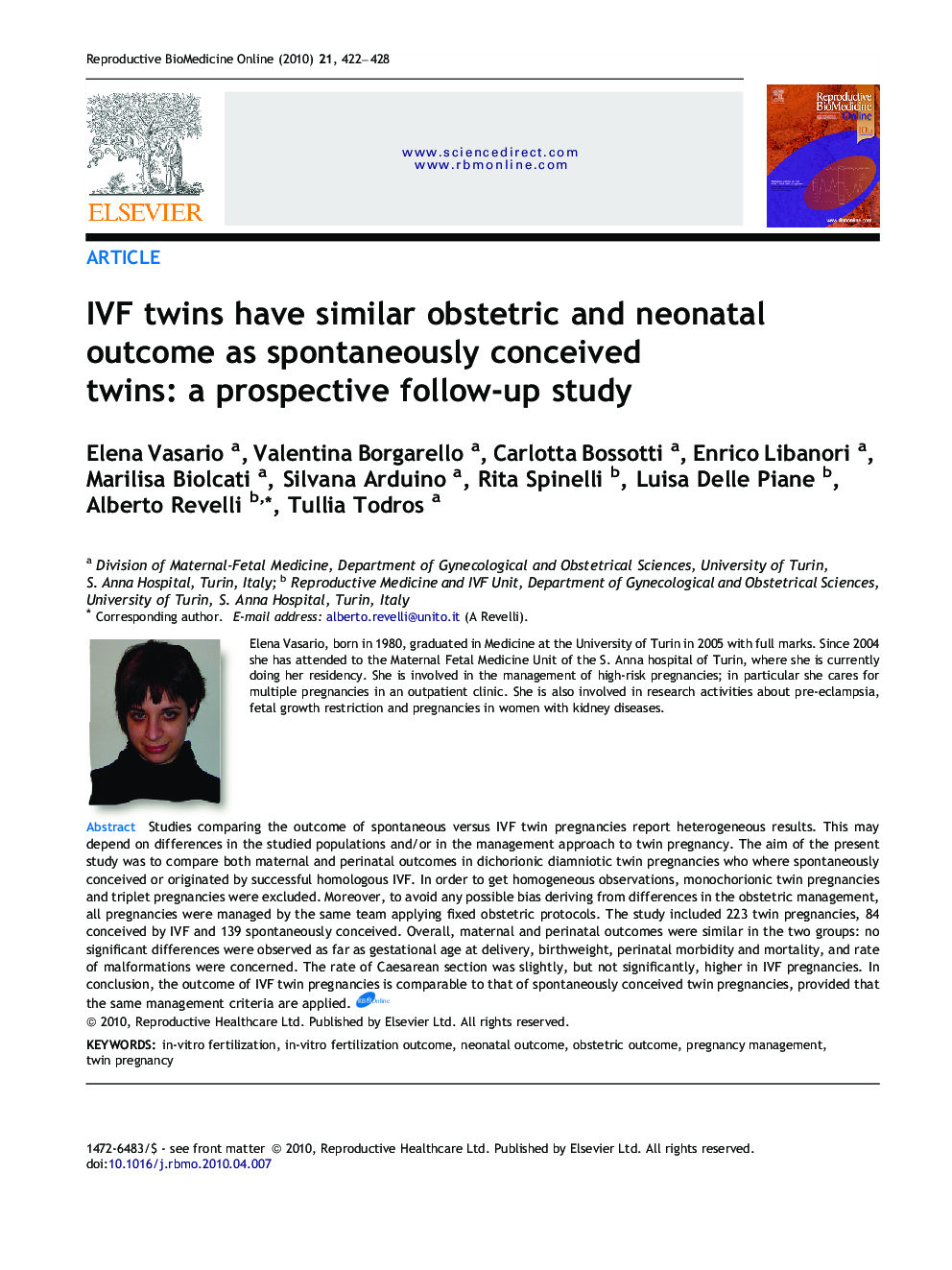| Article ID | Journal | Published Year | Pages | File Type |
|---|---|---|---|---|
| 3971523 | Reproductive BioMedicine Online | 2010 | 7 Pages |
Studies comparing the outcome of spontaneous versus IVF twin pregnancies report heterogeneous results. This may depend on differences in the studied populations and/or in the management approach to twin pregnancy. The aim of the present study was to compare both maternal and perinatal outcomes in dichorionic diamniotic twin pregnancies who where spontaneously conceived or originated by successful homologous IVF. In order to get homogeneous observations, monochorionic twin pregnancies and triplet pregnancies were excluded. Moreover, to avoid any possible bias deriving from differences in the obstetric management, all pregnancies were managed by the same team applying fixed obstetric protocols. The study included 223 twin pregnancies, 84 conceived by IVF and 139 spontaneously conceived. Overall, maternal and perinatal outcomes were similar in the two groups: no significant differences were observed as far as gestational age at delivery, birthweight, perinatal morbidity and mortality, and rate of malformations were concerned. The rate of Caesarean section was slightly, but not significantly, higher in IVF pregnancies. In conclusion, the outcome of IVF twin pregnancies is comparable to that of spontaneously conceived twin pregnancies, provided that the same management criteria are applied.
